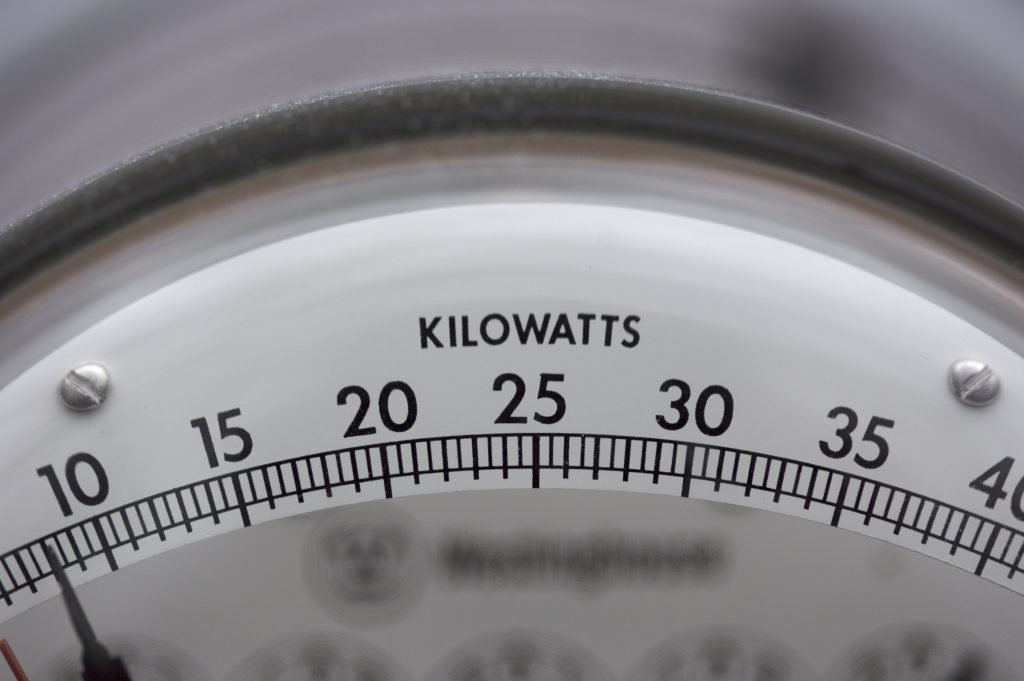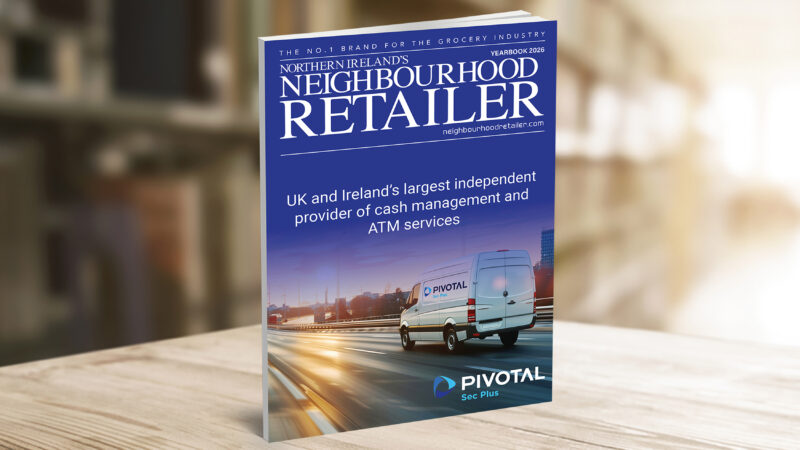Retailers facing ‘perfect financial storm’

With significant increases in energy bills, retailers are left reeling and having to make challenging decisions which impact their business and the consumer, as NR discovers.
Significant rises in energy bills were inescapable last year, with everyone feeling the impact of inflated gas and electricity prices in light of global price pressures, triggered by the Russian invasion of Ukraine.
Customers saw their bills double and even triple in some instances and government assistance came in the form of relief schemes, designed to ease the burden on consumers.
ENERGY BILLS DISCOUNT SCHEME
The Energy Bill Relief Scheme supporting businesses and public sector organisations provided a discount on wholesale gas and electricity prices and came to an end in March this year. A new Energy Bills Discount Scheme (EBDS) was introduced in April 2023, effective to April next year, for eligible non-domestic consumers in Northern Ireland and Great Britain.
According to government guidance, the EBDS is intended to strike a balance between supporting businesses over the year while limiting taxpayer’s exposure to volatile energy markets. However, while wholesale gas prices have fallen to levels just before the invasion of Ukraine, electricity prices remain high.
Inevitably, retailers are feeling this especially, as the very nature of their business requires extensive refrigeration systems and lighting throughout their stores.
SPIRALLING COSTS
Rathfriland retailer, Tom McAvoy has experienced striking increases in the bills coming to his Milestone Nisaextra store, with electricity and gas seeing the “most significant” increases.

“Our electricity costs had risen by £45,000 per month at one stage,” Tom told NR. “This has come back significantly in the last two months and we are continuously monitoring it.
“Electricity and gas have had the most significant increases. Electricity has increased by in excess of 300% but is now coming back down, however still remains much higher than where it was last year.”
‘Electricity has increased by in excess of 300% but is now coming back down, however still remains much higher than where it was last year’
Newry retailer, Terry Mulkerns explained to NR all retailers are experiencing the same problem.
“My energy costs have more than doubled – they have gone from roughly £7000 per month to over £18,000 per month,” he said.
“That is the scale we are talking about and it’s not unusual now. We thought our original bills were expensive until these increases.
“We would never have things switched on that didn’t need to be on. We obviously have to keep the fridges and freezers switched on, but we were never about wasting energy.”
Terry explained that while they do have doors on some of their refrigeration, it hasn’t been possible to retrofit doors on all facilities, and they continue to make savings where they can.
“We educate our staff on keeping those doors closed, all our lights are sensors and we have solar panels – there is little more we can do,” he said.
While they use oil for their heating, electricity is their main energy source at Mulkerns EUROSPAR store based just outside Newry city. Terry said that he and many other retailers feel they have been “left to it” by energy companies.

GOVERNMENT HELP
“I look at the bill and it says 50% of our electricity is coming from renewables, but they have not gone up in price, so I can’t understand how the bill is so high. I think we are being unfairly targeted.
“There was talk of government help, it was just about £300, so was of little benefit. The headlines were all about what we were getting, but that is not what we got. Any price caps were on the wholesale price, but that is not something we had a say in, so it’s all smoke and mirrors.
“When we queried the bills, all we got were three pages of unintelligible excuses of why we were not getting any government help. I just feel that somewhere along the line someone is making money and it isn’t the retailers.”
Tom McAvoy added that while the government scheme “was only activated once” it went some way to help “in that it took the fear out of the situation”.
The financial burdens on retailers show no signs of easing, with National Minimum Wage and National Living Wage increases also adding to that, meaning owners and managers are left with little option but to pass price increases onto their customers.
‘Retailers are a naturally resilient crowd and are hopelessly optimistic, but if we were to sit down and reflect on it all, you would start to wonder why you are still doing it’
“Electricity and staffing are our main costs – it’s just the perfect storm. We are a small independent company and those costs have an impact,” said Terry Mulkerns.
“We have had to pass on the price increases to the customer, we did not have a choice. When the price of milk doubles in 18 months there is no way we can absorb that.
“We are trying to keep value out there but, for example, chicken prices are up 40% and we do not carry that much profit in any line to absorb those increases.”
Tom McAvoy added that the Milestone was facing the same challenges.
“Yes, wages, overheads and rates as well as VAT returning to 20% rate all have impacted on our profit,” said Tom.
“At first we tried to absorb some of the price increases, however we have had no option but to pass on a proportion of the pain to our customers.”
“Retailers are a naturally resilient crowd and are hopelessly optimistic, but if we were to sit down and reflect on it all, you would start to wonder why you are still doing it. If you dwell on it for too long, you are left questioning,” added Terry Mulkerns.

FUTURE INVESTMENT
Inevitably, with such pressures on finances, tough decisions are required on how cash is spent, with Terry revealing that “investment is on hold”.
“That is going to be the theme across the board in retail at the minute. Investment is going to have to take a back seat for the foreseeable future – any money we would have put away for investment has gone to electricity – that is the reality.
“It will start stabilising, energy will come back down somewhat, but not to what it was before. Any reduction right now would be positive.
“I would imagine that there are businesses at risk of closure,” added Terry.
“It depends on their wages, but if profits are wiped out, I do not know how they would survive. Profits are the wages of the owners and if you do not have profits, then you do not have a wage. It’s a very bleak outlook.
“All it would take is for something else to go wrong and we are sitting in a very bad place.”
TURBULENT TIMES
For Terry, the question he is left with is why electricity prices have yet to see any reduction.
“The gas prices were up and peaked but they only lasted a short while, compared to the electricity prices. Our bills have not gone down, they have just risen and risen and there is no sign of them coming down.
“The question needs to be asked of the energy companies as to why we are still paying such high unit costs.”
Having undergone extensive expansion and development in recent years at the Milestone Rathfriland, Tom McAvoy is all-too aware of the importance of investing in the business and providing an extensive range for consumers, but added that caution is the name of the game at the moment.
“We are now more cautious with our expenditure,” he said. “However, we do realise that to succeed we must continue to invest in the business.
“What needs to happen now is for costs to stabilise and inflation needs to be brought under control.
“It has been a challenge to get through these turbulent times, but I think the survivors will come out stronger after this chapter in our retailing.”
TO VIEW THE FULL STORY IN THE NEIGHBOURHOOD RETAILER MAY ISSUE, CLICK HERE






